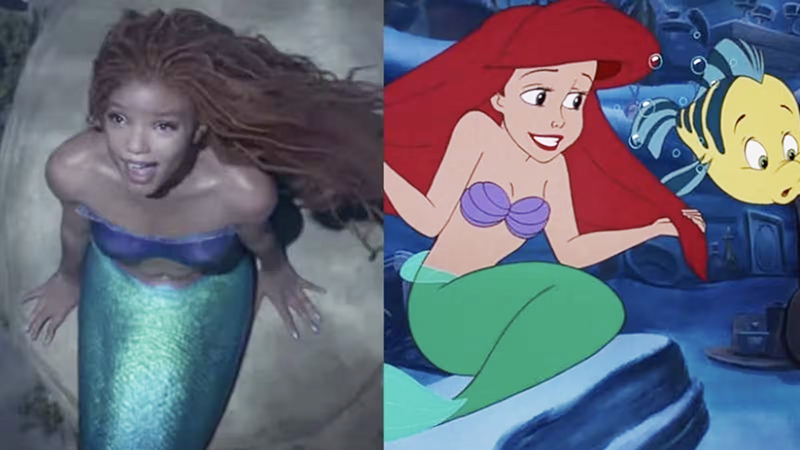According to the definition provided by Webster’s Dictionary, a ‘kink’ can be understood as an individual’s unconventional or non-traditional sexual preference.
The New York Times is facing widespread criticism after publishing a review of the new live-action “The Little Mermaid” that lamented the absence of “kink” in the film.

In the review for The Times, movie critic Wesley Morris expressed his discontent, stating that the new adaptation of the beloved tale was “everything nobody should want in a movie: dutiful and defensive, yet desperate for approval.” He further remarked, “It reeks of obligation and noble intentions. Joy, fun, mystery, risk, flavor, kink — they’re missing.”
The specific mention of “kink,” which can refer to “a person’s unusual sexual preference,” particularly in the context of popular culture, quickly garnered attention and sparked a heated online discussion. As “The Little Mermaid” carries a PG rating and is primarily marketed to children and families, the reference to “kink” raised concerns about appropriate content for young audiences.
The controversy surrounding the use of such terminology in relation to a film intended for children has ignited a broader conversation about the boundaries of children’s entertainment and the responsibility of content creators.
The inclusion of the word “kink” in The New York Times movie review has sparked a divisive debate among online audiences, prompting questions regarding its necessity in the context of a children’s film.
The New York Times wants “kink” in a movie made for children, and they’re sad that The Little Mermaid doesn’t have any of it. https://t.co/yg0xZvy99W
— Ian Miles Cheong (@stillgray) May 27, 2023
Ian Miles Cheong, a political commentator, expressed criticism towards The Times for employing the term “kink” in relation to a movie intended for young viewers. He remarked, “The New York Times wants ‘kink’ in a movie made for children, and they’re sad that The Little Mermaid doesn’t have any of it.”
The New York Times just put up a review of the Little Mermaid where the reviewer complains that KINK was missing from the film. The definition of kink: a person’s unusual sexual preferences. Same media denies the left sexualizes kids. The reviewer needs his hard drives reviewed. pic.twitter.com/mw8g09dv5h
— Robby Starbuck (@robbystarbuck) May 28, 2023
Director Robby Starbuck drew attention to the definition of the word “kink,” further fueling the discussion surrounding its relevance and appropriateness within the review.
“The New York Times has recently faced backlash over a review of ‘The Little Mermaid’ in which the absence of ‘kink’ in the film was lamented. The definition of ‘kink’ as a person’s unusual sexual preferences adds fuel to the ongoing debate about the left’s alleged sexualization of children. Some have even called for a thorough investigation of the reviewer’s digital records.”
There’s a lot of dunking on that NYT review of The Little Mermaid for complaining about lack of “kink” but I’m actually *sort of* sympathetic to the notion. Not kink, that’s terribly imprecise. But romance in children’s movies has become more jokey and sanitized and sterile.
— Matt Bateman (@mbateman) May 28, 2023
Matt Bateman, Vice President of Pedagogy at Higher Ground Education, acknowledged the controversy surrounding the use of the word “kink” but expressed a different concern related to romance in children’s movies. He stated, “While I can’t fully endorse the mention of ‘kink,’ there is indeed a problem with the portrayal of romance in children’s movies. It has become increasingly trivialized, sanitized, and devoid of genuine emotional depth.”
Morris also touched upon another point of controversy surrounding the film, namely the casting decisions that introduced diversity to the characters. Halle Bailey, a Black actress, was cast as Ariel, while the character of Prince Eric, portrayed by a White actor, is shown to have been adopted by Queen Selina, also Black, along with her chief servant, Lashana.
In his review, the movie critic commended Disney for their efforts towards diversification, recognizing it as a step towards addressing the historical issues of racism, chauvinism, and a predominantly white representation in their extensive catalog, which includes properties like Pixar and Marvel. The live-action adaptations serve as opportunities for the studio to rectify past missteps and provide more inclusive narratives.



